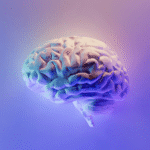A Parent’s Guide to Baby Dental Care

Becoming a parent comes with a million questions, but one that often goes unanswered until there’s an emergency is: “When is the right time for my child to visit a dentist?” While it may not feel urgent, this small but important milestone can play a big role in your child’s long-term oral health.
The Journey of Baby Teeth: What Happens and When?
To understand the right time for that first dental visit, it helps to know what’s happening inside your baby’s mouth. Typically, tooth eruption in children begins around 6 months of age and continues until about 3 years. During this time, parents may notice sore, irritated gums, drooling, and a crankier-than-usual baby. Teething may also come with a slight fever and temporary loss of appetite.
To ease this discomfort, Dr. Ayush recommends gently massaging the gums using a clean, lukewarm, wet gauze piece or simply a clean finger with trimmed nails. “It provides comfort and also encourages healthy gum stimulation,” he explains.
How Many Teeth Do Children Have?
In total, children will develop 20 baby teeth which includes10 in the upper jaw and 10 in the lower jaw. This is fewer than the 32 permanent teeth that adults eventually have. These primary teeth include:
- 4 front teeth (central and lateral incisors)
- 2 canines
- 4 molars
Here’s a general guide to the order and timeline of when these baby teeth appear:
- Front Teeth (Central and Lateral Incisors): 6–16 months
- First Molars: 13–19 months
- Canines: 16–23 months
- Second Molars: 23–33 months
By age 3, most children have their full set of baby teeth. Then, around the age of 6, the process begins in reverse, the baby teeth start falling out to make way for permanent ones. This usually starts with the lower front teeth, followed by the first molars, lower canines, and lastly the upper canines and second molars (both upper and lower).

Why Do Baby Teeth Matter if They Eventually Fall Out?
It’s easy to think baby teeth are temporary and therefore less important, but that’s far from the truth. Dr. Ayush emphasizes, “Even though they fall out, baby teeth serve essential functions. They help your child chew food properly, speak clearly, and most importantly, guide the adult teeth into their correct positions.”
Neglecting these early teeth can lead to cavities, infections, and even premature tooth loss, which can result in misaligned permanent teeth later.
So, When Should You Schedule the First Dental Visit?
The ideal time for a child’s first dental visit is either within six months of the first tooth erupting or by the child’s first birthday – whichever comes first. This first visit is not just about checking for cavities. It’s an opportunity for parents to learn how to properly care for their child’s teeth, get professional guidance on teething remedies, thumb-sucking habits, diet, and even fluoride use.
“Regular dental check-ups after the first visit will help catch issues early and instill healthy dental habits from the beginning.”
Every child’s growth timeline is different, and the same goes for their teeth. Don’t wait until your child is in pain to visit a dentist. Building good dental hygiene early on and staying consistent with checkups can make a lifetime of difference.
So, new parents, put that dental visit on your calendar. Because when it comes to your little one’s smile, early care is the best care.
Also Read
Foods to Skip for a Healthier You with The Buzz Expert
The Faces of En Vogue X – Siddhant KC & Sandy Rana Magar
Thoughtful Gift Ideas for Raksha Bandhan 2025




























